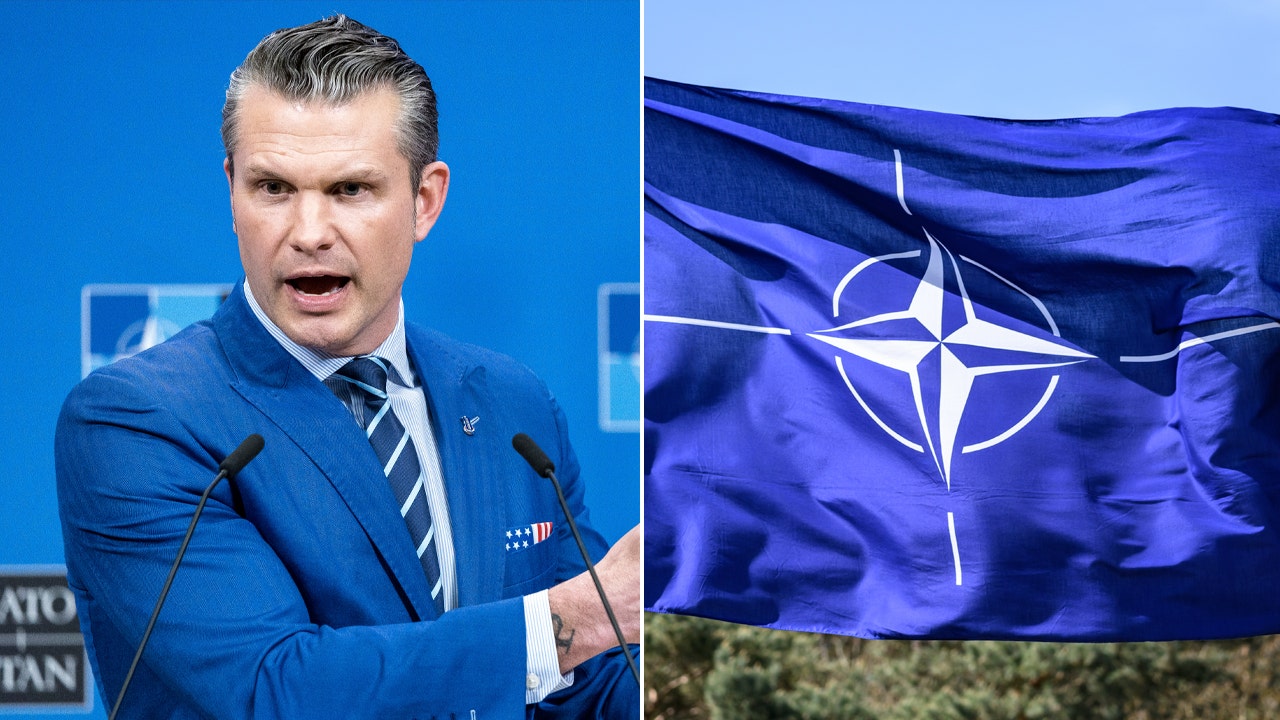‘Make NATO great again’: Hegseth pushes European allies to step up defense efforts

Secretary of Defense Pete Hegseth emphasized the need for European members of NATO to increase their defense efforts in order to “revive the warrior ethos” and strengthen the alliance. Speaking at a NATO meeting in Brussels, Hegseth urged NATO members to prioritize defense spending and enhance their contributions to the alliance.
Hegseth highlighted the significant role the United States plays in NATO, with the U.S. currently spending 3.3% of its GDP on defense, totaling $880 billion. He pointed out that more than 50% of NATO funding comes from the U.S., while other key allies like the United Kingdom, France, and Germany have contributed between 4% and 8% to NATO funding in recent years.
The Secretary of Defense called on European allies to increase their defense spending from 2% to 5% of their gross domestic product, aligning with President Donald Trump’s long-standing advocacy for higher defense expenditures within NATO.
NATO, originally formed in 1949 to counter the Soviet Union, comprises more than 30 countries and remains a vital defense alliance. Hegseth referenced former President Dwight D. Eisenhower’s concerns about the burden placed on the U.S. for deploying troops to Europe in 1959, echoing Eisenhower’s sentiment that European allies were taking advantage of American support.
Drawing parallels between Eisenhower’s views and those of President Trump, Hegseth emphasized the importance of maintaining a fair and equitable distribution of defense responsibilities within NATO. He asserted that the U.S. is committed to its alliances but will not tolerate being exploited or taken advantage of.
As the Trump administration navigates negotiations with Russia and Ukraine to resolve ongoing conflicts, Hegseth’s remarks underscore the need for a unified and robust defense posture within NATO. The administration’s engagement with Russian President Vladimir Putin and Ukrainian President Volodymyr Zelenskyy, along with high-level meetings at the Munich Security Conference, reflects ongoing efforts to address regional security challenges.
Despite criticism and scrutiny surrounding the negotiations, Hegseth reiterated the administration’s commitment to negotiating from a position of strength and ensuring that U.S. interests are protected. The administration’s focus on achieving a peaceful resolution to the conflict in Ukraine demonstrates a strategic and pragmatic approach to international diplomacy.
In conclusion, Secretary of Defense Pete Hegseth’s call for European allies to bolster their defense efforts aligns with broader efforts to strengthen NATO and enhance collective security in an increasingly complex global environment. By prioritizing defense spending and sharing the burden of security responsibilities, NATO members can ensure the alliance’s long-term viability and effectiveness in addressing shared security challenges.




